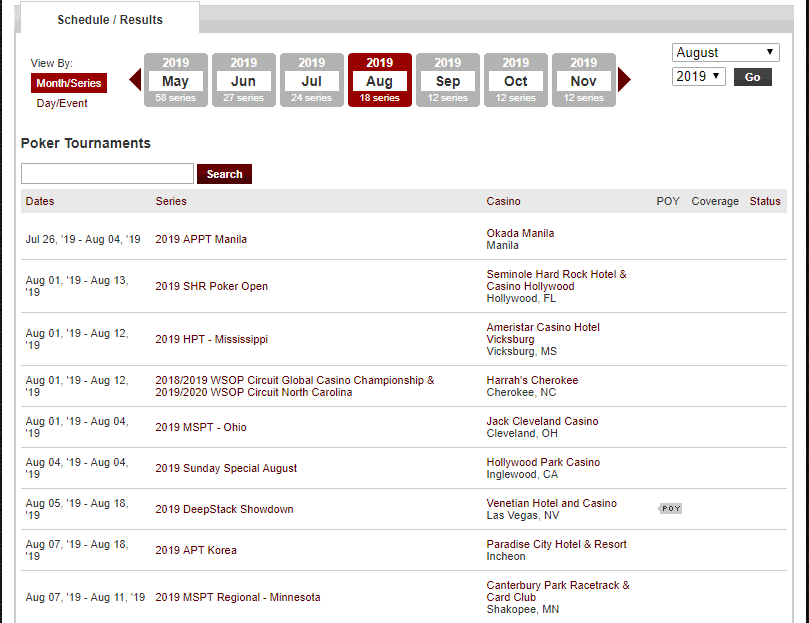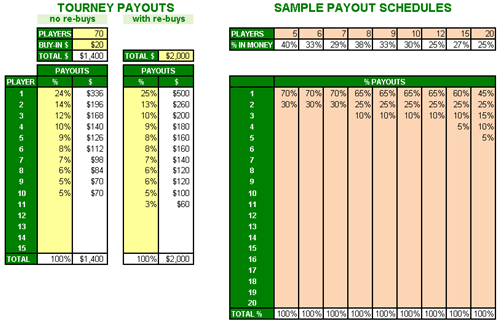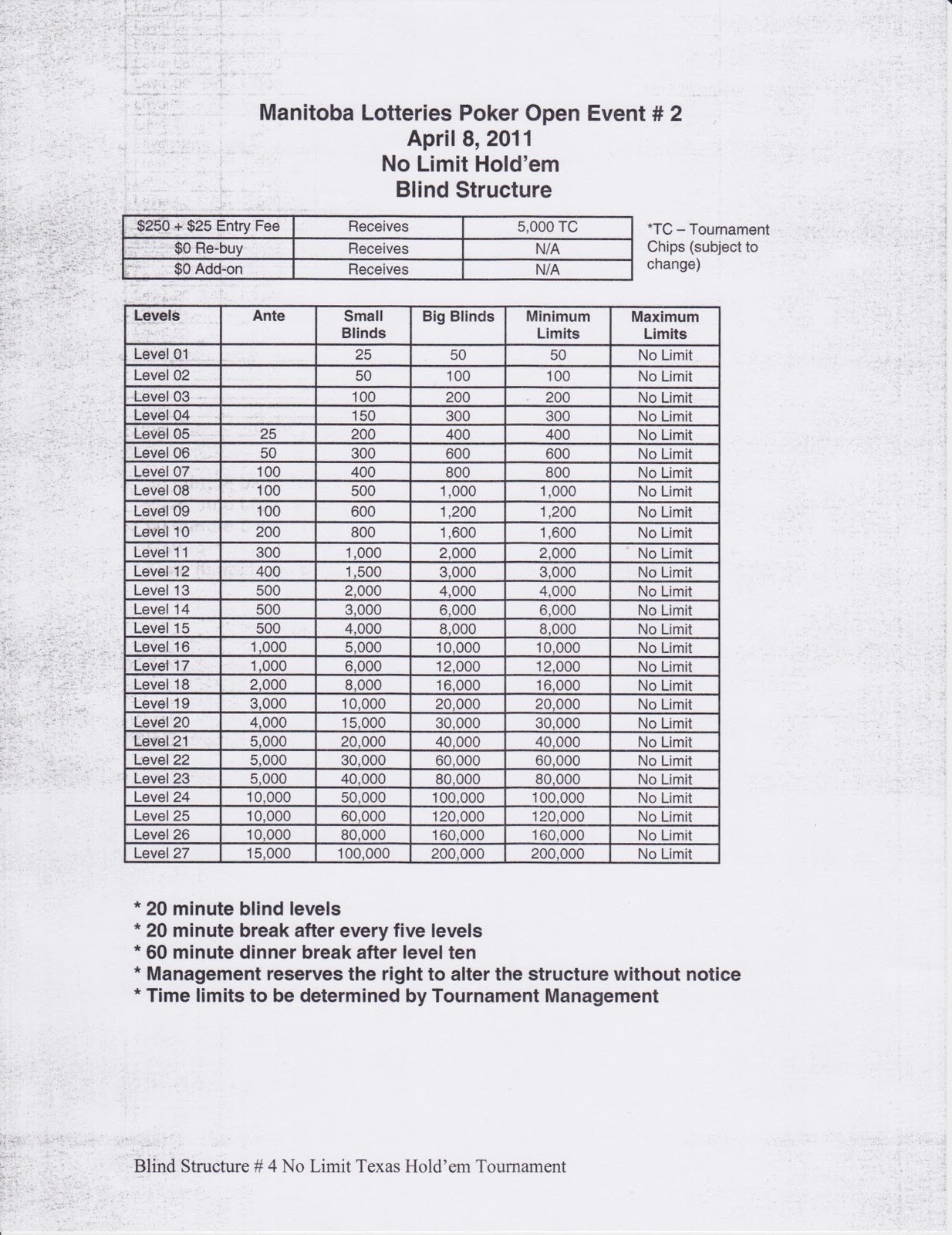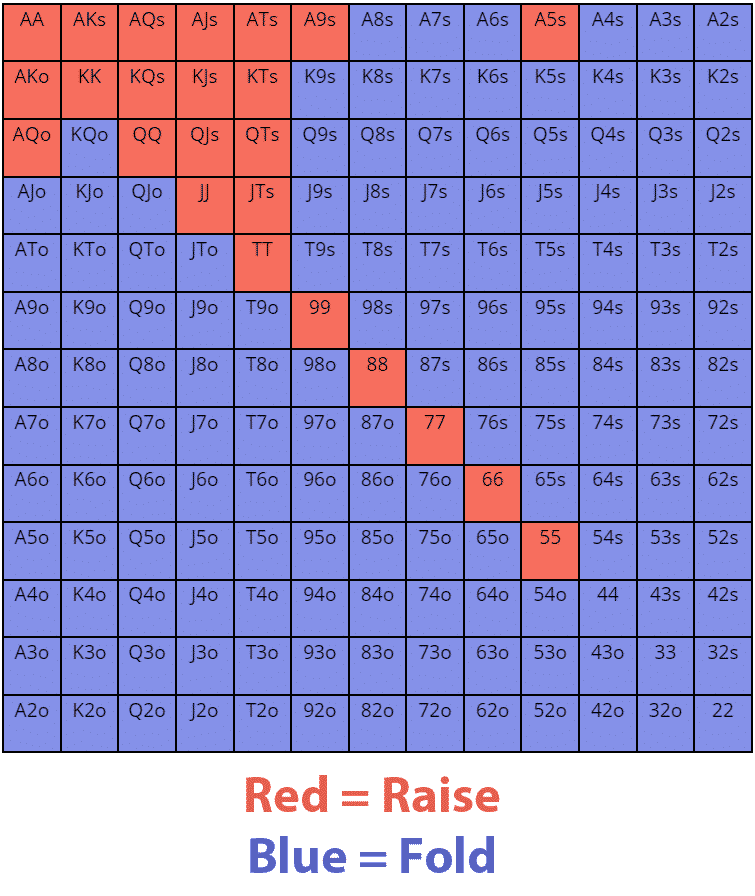Texas Holdem Starting Chip Amount
Poker Chip Calculator: Enter the number of players in your tournament and the number of chips they will be starting with. Meanwhile if you’re setting up a 1,500 starting stack tournament, use three colors for 5 chips, 25 chips and 100 chips. Stick with the same colors for every game because it reduces confusion for regulars at the table. Max buy-in should be 100 big blinds So if you’re playing 5¢/10¢ blinds you should have a $10 max buy-in.
- Texas Holdem Chip Amount
- Texas Holdem Chips Worth
- Texas Holdem Starting Chip Amount 2019
- Texas Holdem Starting Chip Amount 2020
- Texas Holdem Poker Chips Amounts

Bets With Oversized Chips
Texas Holdem Chip Amount
In limit games, a bet with an oversized chip will be deemed to be a call if the player does not announce a raise. In no-limit, an oversized chip before the flop is a call; after the flop, an oversized chip by the initial bettor put in the pot will constitute the size of the bet.
Limit to Number of Raises
In limit events, there is usually a limit to the number of raises, usually the limit is 3 raises. Sometimes, when the hand only has 2 players left, then there is unlimited raising. If it is no-limit then there is never a limit to the number of raises.

Cards Speak
Texas Holdem Poker Rules. The betting structure can be fixed or limited to the pot or limited to your total number of chips, but all texas holdem games start with two players placing money into the pot before they see their cards. The two players to the left of the button (dealer) in a game of hold'em are required to place compulsory bets before the cards are dealt. These are known as blind bets because they are placed 'blind', before the players have even seen their cards. These bets trigger the action in a hand, since there is something already in the pot for all the. Assuming you start with a fairly standard $1,500 stack made up of high and low value chips, you can get away with using around 10-15 chips per person. Similarly, if you were running a multi-table.
The value of a hand is what the cards show, not what the player announces - although a player deliberately and repetitively miscalling his hand with the intention of fooling other players can be penalized.
Verbal declarations stand
If a player verbally announces a move, then he will be required to play according to his verbal declarations - even if he hasn't moved his chips.
String Bets
String bets are not allowed. When raising, a player must either put the amount of the raise out in one motion or state the raise amount. If the raise is unannounced then the raise must be made in one motion. If the raise is announced but no amount is announced (“I raise”) then the amount of the raise must be in one motion. If both the raise and the amount are announced (“I raise 800”) then the player can make several motions to put chips into the pot since there is no question about the details.
If the last bet on the table was 200, and a player states 'I raise 600', then this means that the player is raising BY 600, not TO 600. In other words, he is betting 800.
Table Stakes
Only the amount of chips the player has at the start of a hand is the amount available to wager. A player may not dip into his pocket for additional money during the hand. A player may put cash (or his wallet) into his stack before the start of the hand and have “cash play” as long as the house has a rule that cash plays.
Deck Changes
In most games, players are not allowed to ask for deck changes. There is rarely a legitimate reason to ask for a deck change. At casinos, sometimes they will accommodate a player's request for a deck change in order to placate him because he is a customer. At a home game, asking for a deck change would be considered an idiot request.
Card Visibility
It is a player's responsibility to make sure his cards are visible to other players at all times (they are allowed to lift their cards off the table to look at them). Dealers should remind players about this rule if they see a player slipping.
Unprotected Hands
If a dealer kills an unprotected hand, the player can't do anything about it because it is his responsibility to protect his cards. An exception would be if a player raised and his raise had not been called yet, he would be entitled to receive his raise back.
English only at the table.

Only English may be spoken at the table to ease player's fears about collusion.
Calling Time
A player can call time to think about his hand.
Sitting Out
In a tournament, a player has the right to sit out for as long as he wants as long as he posts his blinds. In a limit game, a player may sit out but needs to post a dead blind when sitting back in.
Showing Cards
Texas Holdem Chips Worth
When a player is all-in, he has to show his cards.
Showing Cards - Showdown - Who Shows First?
At the showdown:

- If everyone checks, then everyone must show their hand - in the order according to the button.
- If there is betting on the final round, then the player who puts in the final bet has to show first and the callers show next - in order according to the button.
Showing Cards - Showing Cards to Other Players
You are not allowed to show your cards to another player. If you show your cards to one player then you need to show them to all players, whether it is during a hand or after.
Showing Cards - Asking to See Other Player's Cards
A player may ask to see another player's mucked cards if he thinks they were cheating. If a player make this request too often then it will be ruled that he is abusing the rule in order to unfairly get information about another player.
Showing Cards - Just Showing One
In informal games, a player is sometimes allowed to show only one card to take down the pot. For example, if the board is JJ882, then he would show a J to indicate he had the nut full house, assuming it is good enough to win the pot. In formal games, you must show both cards in order to win the pot.
Discussing a hand
In laid-back home games, most of the time players are allowed to talk about a hand in play because it is fun. In formal games, players (whether in the hand or not) are not allowed to discuss hands until the hand is over. Talking about a hand can hurt certain players in a hand. A player may be penalized for breaking these rules.
COMMENTS:
Log in to post comments
or Register
HPG ADMIN on March 1, 2013
A skill that is commonly overlooked by novice tournament poker players is that of chip stack management. Managing your chip stack refers to an awareness of the number of chips you have and how your stack size compares to those of your opponents. The changing blind levels and how this relates to your stack and those of your opponents also need to be considered.
The first step is to equate the size of your stack to how many big blinds you have available. This is calculated by dividing the current big blind by the number of chips you possess and dropping any fraction. Thus, a player with 2250 chips at a 50/100 blind level would consider himself to have a 22 big-blind (or 22BB) stack.
Many players typically buy-in to a cash game for around 100BBs, but poker tournaments can vary greatly from that number. For example, most SNGs will start with anywhere from 75 to 150BB stacks while large online tournaments can offer as much as 200BB stacks to begin with. Live deep-stacked tournaments often start with as many as 300BBs – so there’s quite a difference. The depth of stacks will have a significant impact on the strategies you employ at the poker table.
Effective Stack Size
Before we mention how stack sizes influence our play in certain situations, it’s important you understand the concept of effective stack size. As a poker tournament progresses the stack sizes will vary considerably. You may have more chips or fewer chips than an opponent at any given time. The shortest of these stacks is what is considered the effective stack size of the hand since this is the most chips that either player can win from each other. You might have a 50BB stack, but if your opponent only has 10BBs available then your strategy needs to reflect that fact.
It’s now time to examine how the size of your stack size will affect your play. Let’s start by assessing the strategies you can employ when you’re sitting there with a deep stack.
Large (45BBs+)
You have room to play your normal poker game. The early stages of tournaments can often reflect what you might see in a ring game, particularly if the players are really deep-stacked. With this many big blinds in everyone’s stacks your full bag of tricks is in play. You can re-steal and still fold to aggression, 4-bet bluff, call in position and speculate with suited connectors and small pairs. You have room to manoeuvre with semi-bluffs, traps and speculative hands without much fear of severely crippling yourself with a mistake or bad read. You have leverage but once the ratio of your stack compared to the blinds starts to get smaller many of these plays can become inefficient. If you are in the 45-60BB range then you also need to be acutely aware of any potential blind level increase.
Texas Holdem Starting Chip Amount 2019
Medium-Large (35-45BBs)
With this sort of stack size you still have most of your plays available. However, you should generally avoid re-raising in a spot where you would not be willing to call a 4-bet/shove. You will most likely be committed to the hand at this point when comparing the pot odds to the range of hands most opponents would play back at you with. An exception to this would be when you’re playing against someone who will fold a very large portion of his opening range. This player is probably raising light with his weaker hands (in an effort to steal the blinds) and will only commit all of his chips with the very best of holdings. Against random opponents you will usually not have that read so avoiding the situation is usually best.
Medium (23-35BBs)
With this stack size you have some breathing room but will need to be cautious in what hands you decide to open raise with. Limping small pairs and speculative hands is no longer an option as your implied odds are just not available with this stack size. However, this isn’t to say that you can’t raise with them in the right situation. Just be very selective when you’re in early position. In late position you can be very aggressive, especially if the players in the blinds are not liable to re-steal or re-raise very much. Also, if you’re considering a re-raise from the blinds with the high end of this size stack (30-35BBs), a good tactic may be what is known as a “go-and-go”. This is when you make a re-raise to roughly 30% of your stack and, if your opponent just calls, you can shove on any flop – unless you happen to flop a very strong hand. A hand like A-Q or A-J is ideal for this tactic.
Medium-Short (14-22BBs)
Almost any hand that you decide to raise with should be one that you are willing to go with all the way, should you be re-raised pre-flop. In fact, this is very often the ideal stack size to re-raise all-in with. If you are going to re-raise then it will be for at least half of your chips. By doing this you are committing yourself to the hand so you might as well go ahead and get it all in. This also means you can take advantage of any fold equity you might have, which is your ability to make your opponent fold and take down the pot uncontested.
Short (8-13BBs)
You’re now a short-stack and don’t have much room to play with. Your aim should be to double up and get back in the game. Any move you make pre-flop that isn’t a fold should be an all-in shove. While you should be somewhat selective with your hand ranges, you don’t have time to wait for Aces of Kings. Other factors may determine just how wide your range of shoving hands will be (like the bubble of a SNG) but you should not be afraid of playing for your stack. If antes are in play then shoving when you have as many as 15BBs in usually correct – since the size of the pot is that much larger and worth fighting for.
Very Short (4-7BBs)
Texas Holdem Starting Chip Amount 2020
When you’re this close to the felt you will need to act fast. The blinds (and antes if in play) are going to take a significant chunk of your chips so you need to build your stack back up and out of the danger zone. If you play a hand then it must be for all your chips. You have no room for traps and tricks. In fact, things like limping and min-raises will draw more suspicion from your opponents than an all-in move would.
Critically Short (under 4BBs)
If it folds to you then you’re probably going to have to shove with any two cards, no matter what your position at the table. Unless there is a very good reason (the bubble of a satellite for one) the best thing to do is to push-and-pray, especially if it is still early in the tournament. Clearly, you have no fold equity and won’t threatenanybody with your stack. The odds are that you will be called by just about anything and will have to win at a showdown.
Conclusion
Realize that many poker players at the lowest levels will not know about the concept of chip stack management. They will instinctively know that it’s correct to shove a short stack or call a bit wider in some spots, but you will find many of your opponents to be generally unaware of how their chip stack should be used.
Texas Holdem Poker Chips Amounts
Your chips can be used as weapons and are often more important than your actual cards. The more weapons you possess, the more options you have available to you during the course of a poker tournament. A large stack gives you the most flexibility while a short stack will constrain you greatly, often limiting you to a push-or-fold strategy.
Keeping track of your chip stack and be able to effectively adjust your playing strategy is perhaps the most important skill a tournament player can possess, especially with regards to the endgame or final table play. With practice you’ll be able to master this skill and have a considerable edge over the vast majority of your opponents. Take the time to recognize these situations and good luck at the tables.
Related Lessons
By Rick 'RyckyRych' Perlini
Rick has been playing poker since 2007 and is a low-stakes online SNG specialist. He has been a highly active and well-respected member of the Pokerology community for several years.